Treatment
Polynucleotides Treatment.
Discover Polynucleotides: Advanced Polynucleotide Treatment and Injection Treatment Innovations
What Exactly Are Polynucleotides?
Polynucleotides for skin are biotechnologically derived compounds used in dermatology and cosmetic medicine to improve skin health and appearance. These polynucleotides are typically extracted from natural sources, such as salmon DNA, and are used in various treatments aimed at skin rejuvenation, repair, and hydration.
How Do Polynucleotides Work?
Polynucleotides work by providing the skin with nucleotides and nucleosides, the building blocks of DNA and RNA. These molecules are involved in various cellular processes, including:
- Cellular Repair: By supplying nucleotides, polynucleotides support the repair of damaged DNA and RNA, which is crucial for maintaining healthy skin cells.
- Stimulation of Growth Factors: Polynucleotides can stimulate the production of growth factors that enhance cell proliferation and tissue regeneration.
- Enhanced Collagen Production: They boost the activity of fibroblasts, leading to increased collagen production, which is essential for maintaining skin structure and firmness.
What Are the Benefits of Polynucleotide Treatments?
- Skin Repair and Regeneration: Polynucleotides promote the repair and regeneration of skin cells by stimulating the production of fibroblasts, which are essential for collagen synthesis. This leads to improved skin texture and elasticity.
- Anti-Aging Effects: They help reduce the appearance of fine lines and wrinkles by enhancing the skin’s natural regenerative processes and increasing moisture retention.
- Hydration: Polynucleotides improve the skin’s ability to retain moisture, leading to better hydration and a plumper, more youthful appearance.
- Anti-Inflammatory Properties: These compounds have anti-inflammatory effects, which can help reduce redness, irritation, and other signs of inflammation.
- Wound Healing: Polynucleotides can accelerate wound healing by promoting cell proliferation and tissue repair.
What to Expect During a Polynucleotide Treatment:
During a polynucleotide treatment for skin rejuvenation, the procedure typically involves a series of steps designed to deliver these beneficial compounds effectively into the skin. Here’s what you can expect:
1. Consultation
- Initial Assessment: A consultation with Rupesh to assess your skin condition, discuss your goals, and determine if polynucleotide treatment is suitable for you.
- Medical History: Review of your medical history and any potential contraindications or allergies.
2. Preparation
- Cleansing: The treatment area will be thoroughly cleansed to remove any makeup, oils, and impurities.
- Topical Anaesthetic: A topical numbing cream may be applied to minimise discomfort during the procedure. This is typically left on for 20-30 minutes.
3. Injection Procedure of Polynucleotide treatment
- Injection Technique: Polynucleotides line Nucleofill are usually administered through a series of microinjections using fine needles. The depth and distribution of the injections depend on the specific treatment protocol and the areas being targeted (e.g., face, neck, hands).
- Target Areas: Common areas include fine lines, wrinkles, and areas needing volume or hydration improvement.
- Duration: The injection process can take 30-60 minutes, depending on the size of the treatment area.
4. Post-Treatment Care of Polynucleotide treatment
- Cooling and Soothing: Post-injection, the treated area may be cooled with ice packs or soothing gels to reduce any swelling or redness.
- Instructions: You will receive aftercare instructions, which may include avoiding sun exposure, strenuous exercise, and certain skincare products for a few days.
5. Recovery and Results of Polynucleotide treatment
- Immediate Effects: Some immediate improvement in skin hydration and plumpness might be noticeable, but the full effects will develop over time as the skin regenerates.
- Downtime: Minimal downtime is typical, but you might experience mild redness, swelling, or bruising at the injection sites, which usually subsides within a few days.
- Follow-Up: Multiple sessions may be recommended for optimal results, spaced a few weeks apart. The exact number of sessions will depend on your skin’s response and the specific goals of the treatment.
6. Expected Outcomes of Polynucleotide treatment
- Improved Skin Texture: Smoother and more even skin texture.
- Enhanced Elasticity and Firmness: Increased skin firmness and elasticity due to collagen stimulation.
- Hydration and Radiance: Better skin hydration leading to a more radiant appearance.
- Reduced Fine Lines and Wrinkles: A noticeable reduction in the appearance of fine lines and wrinkles over time.
Considerations
- Qualified Practitioner: Ensure that the treatment is performed by a qualified & Experienced practitioner like Rupesh to minimise risks and maximise results.
- Consistency: For best results, adhere to the recommended treatment schedule and follow all aftercare instructions provided by your practitioner.
In summary, polynucleotide treatments are minimally invasive procedures aimed at rejuvenating and revitalising the skin. The process involves preparation, injection, and post-treatment care, with results improving over a series of sessions.
Safety and Efficacy of Polynucleotide Treatment:
Polynucleotide treatments are generally considered safe and well-tolerated, with a low risk of adverse effects. They are biocompatible and do not provoke significant immune reactions. The efficacy of these treatments can vary depending on the individual and the specific formulation used.




